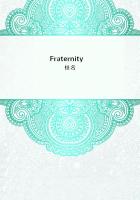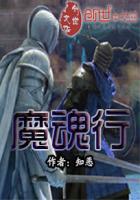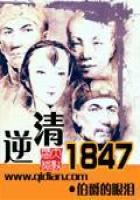The constitution of government is the constitution by the sovereign authority of the nation of an agency or ministry for the management of its affairs, and the letter of instructions according to which the agent or minister is to act and conduct the matters intrusted to him.The distinction which the English make between the sovereign and the ministry is analogous to that between the state and the government, only they understand by the sovereign the king or queen, and by the ministry the executive, excluding, or not decidedly including, the legislature and the judiciary.The sovereign is the people as the state or body politic, and as the king holds from God only through the people, he is not properly sovereign, and is to be ranked with the ministry or government.Yet when the state delegates the full or chief governing power to the king, and makes him its sole or principal representative, he may, with sufficient accuracy for ordinary purposes, be called sovereign.Then, understanding by the ministry or government the legislative and judicial, as well as the executive functions, whether united in one or separated into distinct and mutually independent departments, the English distinction will express accurately enough, except for strictly scientific purposes, the distinction between the state and the government.
Still, it is only in despotic states, which are not founded on right, but force, that the king can say, L'etat, c'est moi, I am the state; and Shakespeare's usage of calling the king of France simply France, and the king of England simply England, smacks of feudalism, under which monarchy is an estate, property, not a public trust.It corresponds to the Scottish usage of calling the proprietor by the name of his estate.It is never to be forgotten that in republican states the king has only a delegated sovereignty, that the people, as well as God, are above him.He holds his power, as the Emperor of the French professes to hold his, by the grace of God and the national will--the only title by which a king or emperor can legitimately hold power.
The king or emperor not being the state, and the government, whatever its form or constitution, being a creature of the state, he can be dethroned, and the whole government even virtually overthrown, without dissolving the state or the political society.
Such an event may cause much evil, create much social confusion, and do grave injury to the nation, but the political society may survive it; the sovereign remains in the plenitude of his rights, as competent to restore government as be was originally to institute it.When, in , Louis Philippe was dethroned by the Parisian mob, and fled the kingdom, there was in France no legitimate government, for all commissions ran in the king's name; but the organic or territorial people of France, the body politic, remained, and in it remained the sovereign power to organize and appoint a new government.When, on the d of December, , the president, by a coup d'etat, suppressed the legislative assembly and the constitutional government, there was no legitimate government standing, and the power assumed by the president was unquestionably a usurpation; but the nation was competent to condone his usurpation and legalize his power, and by a plebiscitum actually did so.The wisdom or justice of the coup d'etat is another question, about which men may differ; but when the French nation, by its subsequent act, had condoned it, and formally conferred dictatorial powers on the prince-president, the principal had approved the act of his agent, and given him discretionary powers, and nothing more was to be said.The imperial constitution and the election of the president to be emperor, that followed on December d, , were strictly legal, and, whatever men may think of Napoleon III., it must be conceded that there is no legal flaw in his title, and that he holds his power by a title as high and as perfect as there is for any prince or ruler.
But the plebiscitum cannot be legally appealed to or be valid when and where there is a legal government existing and in the full exercise of its constitutional functions, as was decided by the Supreme Court of the United States in a case growing out of what is known as the Dorr rebellion in Rhode Island.A suffrage committee, having no political authority, drew up and presented a new constitution of government to the people, plead a plebiscitum in its favor, and claimed the officers elected under it as the legally elected officers of the state.The court refused to recognize the plebiscitum, and decided that it knew Rhode Island only as represented through the government, which had never ceased to exist.New States in Territories have been organized on the strength of a plebiscitum when the legal Territorial government was in force, and were admitted as States into the Union, which, though irregular and dangerous, could be done without revolution, because Congress, that admitted them, is the power to grant the permission to organize as States and apply for admission.Congress is competent to condone an offence against its own rights.The real danger of the practice is, that it tends to create a conviction that sovereignty inheres in the people individually, or as population, not as the body politic or organic people attached to a sovereign domain; and the people who organize under a plebiscitum are not, till organized and admitted into the Union, an organic or a political people at all.When Louis Napoleon made his appeal to a vote of the French people, he made an appeal to a people existing as a sovereign people, and a sovereign people without a legal government.In his case the plebiscitum was proper and sufficient, even if it be conceded that it was through his own fault that France at the moment was found without a legal government.When a thing is done, though wrongly done, you cannot act as if it were not done, but must accept it as a fact and act accordingly.















